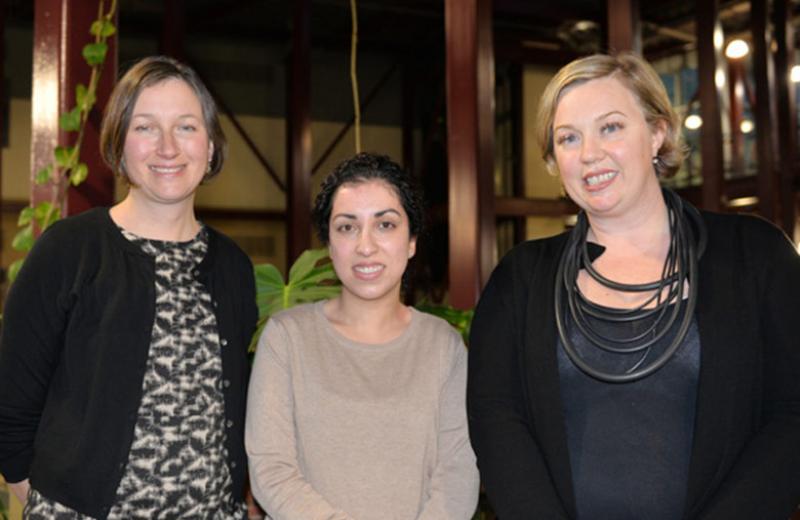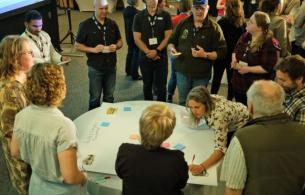UNBC PhD candidate Daman Kandola was recently awarded a 2018/2019 Canadian Institutes of Health Research (CIHR) Health System Impact Fellowship (HSIF). She’s one of only three PhD fellows in BC, and 20 from across Canada. Daman’s research focuses on the delivery of stroke-related care across the Northern Health region.
Daman is the first person from UNBC to be awarded a CIHR HSIF fellowship and is excited to be recognized.
“It’s amazing to have the importance of this work recognized on a national level and to celebrate some of the research we are doing at UNBC,” she said.
This 1-year fellowship supports Northern Health’s mission of promoting health and providing health services to Northern and rural populations. The fellowship is funded jointly by Northern Health and CIHR’s Institute of Health Services and Policy Research. The goal is to train the next generation of scientists in hybrid research and policy careers to work in health systems to address challenges in health service delivery, clinical care, and innovation.
Broken into three phases, Daman’s study looks at the different ways to arrive at the hospital and the time taken to receive stroke care. Sites she’s studying are ones with computerized tomography (CT) and magnetic resonance imaging (MRI) scans — they include the University Hospital of Northern BC in Prince George, GR Baker Hospital in Quesnel, Dawson Creek and District Hospital, Fort St. John Hospital, Mills Memorial Hospital in Terrace, and Prince Rupert Regional Hospital. The study is expected to finish in fall 2019.
To understand patient experiences, Daman’s interviewing stroke survivors and their family members.
“This information is very meaningful to learn about each person’s experience. Numbers don’t tell the full story, so hearing directly from those affected is important,” she said. “Findings from this study may be relevant to similar small urban, Northern, rural, and remote regions. We hope that this work will improve health services for acute and time-sensitive conditions including stroke.”
Daman also said she’s grateful for the expertise of her mentors, including academic supervisor Dr. Davina Banner, Northern Health supervisor Dr. Jessica Place and cardiac and stroke lead Kristin Massey. “We’re fortunate to have a wonderful team support this fellowship including patient partners,” says Daman.
If you’d like further information about this work, or if you or someone you know has had a stroke in the last two years and is interested in sharing their stroke experience, contact Daman at kandola@unbc.ca.














Comments